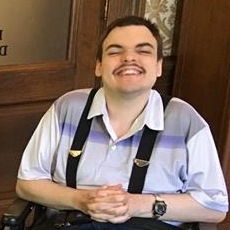FROM THE DESK OF ROBERT D. GARRISON
For Oxford University Lecture circa 2055
Ladies and Gentlemen of Oxford University
It is an honor for me to accept your invitation to speak to you today about the American Congress. God has blessed me with the honor of a distinguished 20-year career in the U.S. House of Representatives, including a six-year (three term) stint as Speaker of the House. I’ve come a long way in my 72 years. I grew up in Kennewick, Washington. I became interested in public affairs in my teenage years. U.S. History and Civics were my two most favorite subjects in high school. Add to this the fact that the controversial 2000 presidential election and the horrid September 11th, 2001, attacks on my country, occurred during my junior and senior years of high school and I knew that politics would be my life’s work. As I watched the ghastly images of the burning World Trade Center towers, I made a vow to do whatever I could to make my country a better place.
After graduating from high school, I spent 11 years in college altogether until I obtained both Bachelor’s and Master’s degrees in political science. I fondly remember serving as a student “senator” in junior college; (Columbia Basin College of Pasco, Washington) Our student government was a unicameral (one chamber) legislative body that oversaw campus clubs. I served on both the Bylaws and the Election Committees. During my five years in student government, I helped pass election reform that moved us from paper ballots to online voting. I also changed the bylaws to allow senators to sit on the Bylaws Committee. While student politics is a microcosm of the Federal Government, it nonetheless gave me experience in parliamentary procedure and further fueled my passion for politics.
After obtaining my Masters degree in political science from American Public University in 2013. (American Public University is a 100% online for-profit university based in Charles Town, West Virginia that has since been called, “the Harvard of online education” by Newsweek magazine in 2030). I later got married and moved to Texas I got involved in local politics and first won my House seat as a Republican Congressman from New York in 2026. I will say here that I have always been a devout Christian. I am what American pollsters refer to as an “evangelical” voter (in other words, a social conservative). I have always had a strong moral compass. This moral compass was tested early in my career. I was asked by a lobbyist representing a defense contractor in my district, to vote for a bill that benefited the defense contractor. However, I soon realized that the bill, while indeed helping the employees of the defense contractor, also raised taxes, and cut funding to a government program that offered help for sick children. I soon recognized that this was a trap put up by the lobbyists. I wanted to prove to my fellow legislators and to my constitutes, that I could not, and would not, be bought! I, therefore, carefully examined the bill and make an effort to separate the interests of the defense contractor from the program for the sick children. I did not see any common links between a defense contractor and a program for sick children. I discovered that various provisions of the bill, were put in as “riders.” (“Riders” are authorizations within a bill for programs that often have no common link to the underlying bill.) (see Roger H. Davidson, Walter J. Oleszec, and Frances E. Lee Congress and its Members 13th ed. Washington D.C: CQ Press, 2011, 418-419). Therefore, to please both sides, I introduced another (“clean”) bill that gave the benefits to the defense contractor without raising taxes or endangering federal funds for the program for sick children. My clever parliamentary maneuver soon won me the respect of my House colleagues. My mastery of parliamentary procedure soon gained me a seat on the Rules Committee, and I later became Speaker of the House.
I rose to the Speakership in 2032 and served as Speaker for 6 years from 2032 until my retirement from Congress in 2038. Unlike the Speaker of your House of Commons (who, as you all well know, must renounce all partisan leanings and make sure that every member of parliament is treated fairly), (see Eric R. Petersen, Congressional Research Service, Parliament and Congress: A Brief Comparison of the British House of Commons and the U.S. House of Representatives. 19 May 2005. p. 9 http://www.fas.org/sgp/crs/misc/RL32206.pdf (accessed 23 February 2012) Indeed, in America, the Speaker of the U.S. House of Representatives is a very important leader of their party within Congress. The U.S. Speaker is elected along party lines and is expected to enforce party discipline among the members of their party’s caucus. The American Speaker also selects the members of the Rules Committee, which schedules floor debates. The Speaker may either rule as a consensus-builder or as a tyrant. Consensus-builders (such as “Tip” O’Neill and Sam Rayburn) made an effort to be kind to members and make them feel as though they are an important part of the House’s work, (see Richardson, et, al, 144-146) whereas tyrants such as “czar” Thomas B. Reed and Joseph Cannon, only fostered resentment among members (see ibid).
When I rose to the Speakership, I knew I had to be a consensus-builder as O’Neill was, if I wanted to get anything accomplished as Speaker. My training in political science, gave me the unique skill to compartmentalize (separate) the varying political ideologues and partisan leanings of my colleagues, from my personal friendships with many of them. Much like the celebrated relationship between Tip O’Neill and Ronald Reagan, I was able to chat with different members of my own party as well as the members of the opposition (whether they were fellow members of the House or Senate or the President of the United States) and explain to them what I believed in matters of public policy. I was able to persuade them to agree with my views eventually. I believe in compromise; however, I do not view compromise as having to sacrifice one’s beliefs for the sake of getting along with others.; rather, I view compromise as being able to settle for less and achieve legislative accomplishments bit by bit, rather than in “grand bargains” or huge bills.
My legislative successes as Speaker, were helped in large part by the fact that my term in Congress, also happened to coincide with America’s Fourth Great Awakening, which took place from 2013 to 2040. During this time of religious revival, the American public became more Christian and conservative in their political character. Thus, during my time as Speaker, Congress was able to pass many socially conservative pieces of legislation, that those in the Evangelical community had longed for since the 1980’s. We enacted major Constitutional reform: We were able to pass a Human Life Amendment to the Constitution. We were also able to adopt a Religious Freedom Amendment that strengthened the 1st Amendment’s Freedom of Exercise Clause. The Amendment we passed, said that expressions of one’s religion in government buildings (such as voluntary school prayer) were not to be construed as violations of the 1st Amendment’s Establishment Clause. We also enacted a bill that limited the jurisdiction of the Supreme Court in social policy . We passed a Constitutional Amendment that established term limits (15 years) for justices of the Supreme Court. Because my party had strong majorities in both the House and Senate during my Speakership, we were also able to pass many important economic reforms. We passed a Constitutional Amendment which repealed the Sixteenth Amendment (concerning income tax) in favor of an Amendment that established a flat tax. The Amendment also abolished the Internal Revenue Service and ensured that pastors of churches were free to speak on political issues from the pulpit while remaining tax exempt. We also passed a Balanced Budget Amendment to the Constitution.
In closing, let me say, that it takes passion to get things done in life. Passion for what one believes in, is the force that drives a person to accomplish great things. If one finds something they love to do, they must learn everything they can about it. That is, they must select a college major that revolves around the thing they are passionate about and master the knowledge they need to be successful in their field. For me, my field was of course, political science. For you in may be something entirely different. Throughout my 72 years of life, I have discovered that God puts within each one of us a “divine spark” that gives us our purpose for life on this Earth. It is my hope and prayer that you all will discover where your “divine spark” (your divine calling) will lead you in life. If and when you do, then this great University’s motto: “Dominus Illuminatio Mea” “The Lord is my Light” will become a reality in your life, (see University of Oxford, “What does the University’s motto…mean?” https://uni-of-oxford.custhelp.com/app/answers/detail/a_id/121/related/1 (accessed 23 February 2012).
May God bless you all!
Bibliography
- Davidson Roger H, Walter J. Oleszec, and Frances E. Lee Congress and its Members 13th ed. Washington D.C: CQ Press, 2011).
- Petersen, Eric R. Congressional Research Service, Parliament and Congress: A Brief Comparison of the British House of Commons and the U.S. House of Representatives. 19 May 2005. http://www.fas.org/sgp/crs/misc/RL32206.pdf (accessed 23 February 2012)
- University of Oxford, “What does the University’s motto…mean?” https://uni-of-oxford.custhelp.com/app/answers/detail/a_id/121/related/1 (accessed 23 February 2012).




